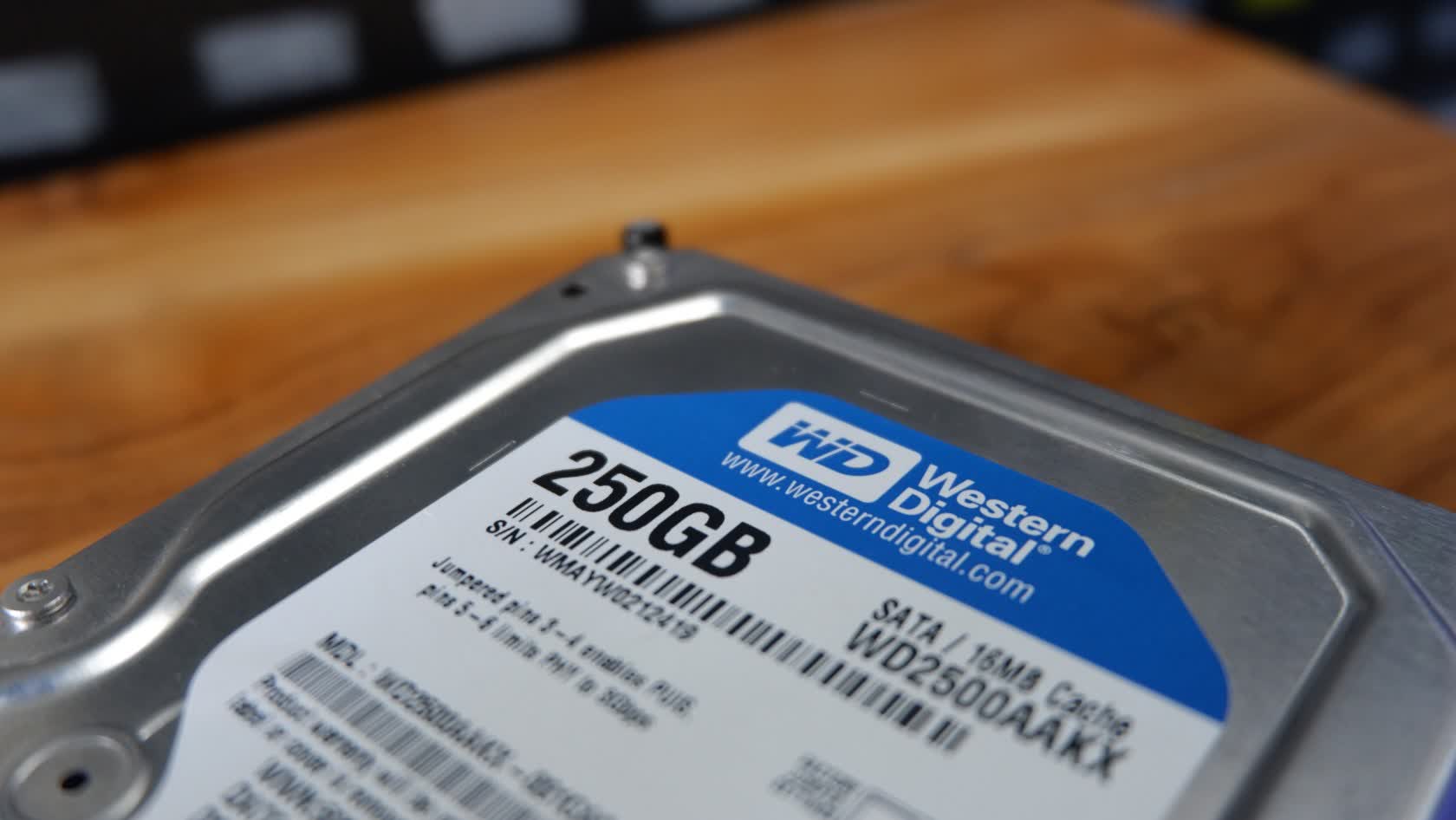Why it matters: A recent report from Trendfocus shows SSD sales continue to rise dramatically, while HDD manufacturers are noticing record-breaking declines in overall shipments. Analysts estimate that shipments declined by more than 40 percent compared to 2021.
For decades, HDDs were consumers' go-to choice for PC storage. Hard disk drives offered an excellent balance of high capacity at lower costs. However, HDDs have begun to be outclassed by solid-state drives (SSDs), which generally provide better performance at a higher price. Despite this (or perhaps because of it), HDDs still held a higher market share for years due to the significantly better cost per GB and larger storage capacities.
However, this changed for the first time in 2020, when SSDs outsold HDDs. A leading factor in this shift in sales likely rests on SSD prices finally becoming manageable for even the most budget-minded PC users. Surprisingly, Statista noted in September that HDD shipment levels went nearly unchanged in 2021, falling by only 0.5%. Unfortunately for manufacturers, this stagnation didn't last long.
The latest report from Trendfocus analysts covers the quarterly and yearly changes for the three largest HDD manufacturers --Seagate, Toshiba, and Western Digital Corp. (WDC). The results provided in the analysis don't bode well for those producers.

The three leading manufacturers noticed a steep drop in 2022. Seagate took the most brutal hit, with estimates ranging between -41.7 and -43.7 percent in HDD sales. Western Digital dipped nearly as much, falling 40.7 to 43 percent. Toshiba faired the best but still saw losses of 37.7 and 39.3 percent.
Oddly enough, despite the sharp decline in shipments, 2.5" HDDs still "rebounded" by nearly 15 percent quarter-for-quarter. However, these were the only drives that saw an increase in sales. Consumer drives declined by mid-single-digit percentages, which, while not promising, is still a far cry from what occurred in the enterprise industry.
Sales of enterprise-focused drives tanked due to "falling cloud demand" within businesses. Trendfocus points out that Seagate, Toshiba, and WDC sold an estimated 11.5-12.5 million enterprise drives combined, which sounds like a large number. However, it still resulted in a 25-percent decline in quarter-to-quarter shipments.
Overall, there appears to be no end to the decline in HDD sales. Solid-state drive prices are quickly falling to near HDD levels, with 500 GB SSDs even reaching price parity with 500 GB HDDs. There's reason to believe this parity will spread to SSDs above 500 GB by the end of 2023, which could spell disaster for HDD manufacturers.
